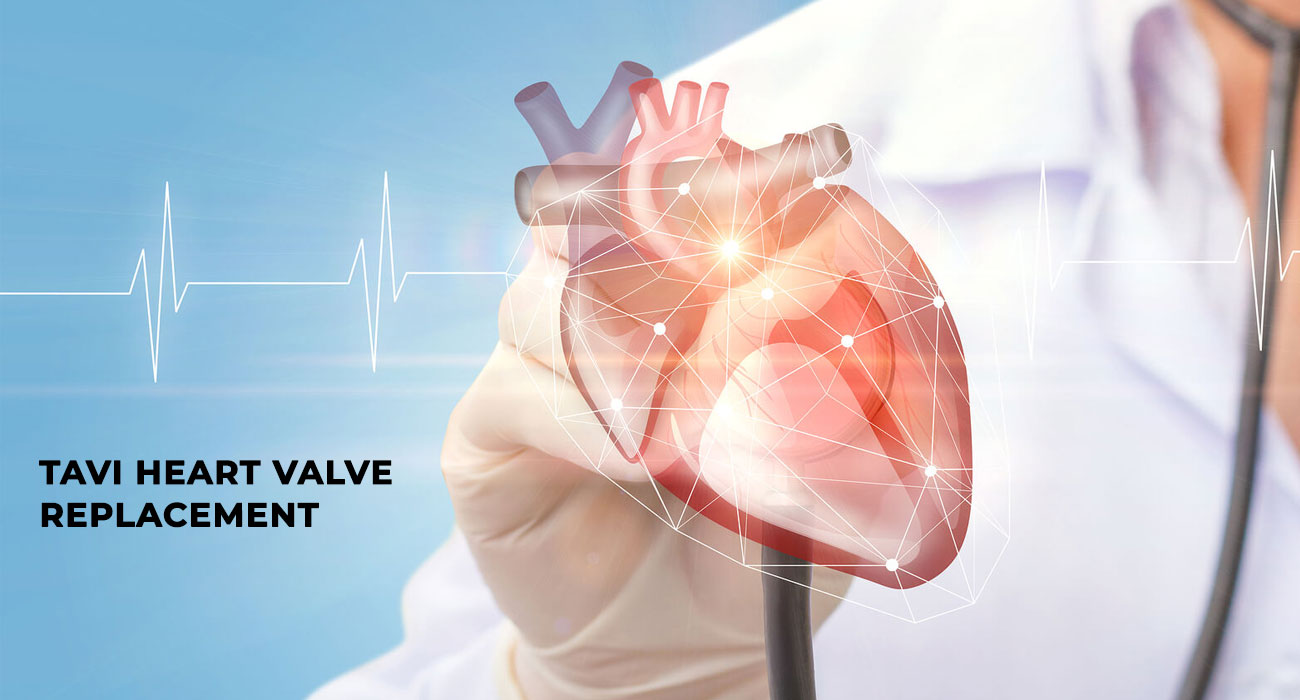05/03/2021
What Is TAVI Heart Valve Replacement Procedure In India?
Also known as Transcatheter aortic valve implementation (TAVI) is a minimally invasive procedure in which the surgeon replaces a diseased aortic valve. The aortic valve is located on the heart’s left side and controls the outflow. It ensures that the blood leaves the heart’s main pumping chamber and doesn’t leak back into the left ventricle.
In most cases, the TAVI procedure is a highly effective option for patients who are not eligible for open-heart surgery. It’s performed to relieve the symptoms of aortic valve stenosis and to improve life quality in people who have severe symptoms.
Why it’s performed?
Heart Valves are responsible for ushering blood through the heart. However, various heart diseases can prevent the heart’s valve from functioning. In stenosis, the heart’s valve gets thickened and calcified, preventing the valve from opening fully. It means that less-than-normal blood flows into the heart and the body, which cause chest pain, fatigue, swelling and shortness of breath.
However, if the damage becomes advanced, the symptoms may get too severe, and the patient will need heart failure treatment in Jaipur to prevent cardiac arrest. Therefore, valve replacement is the most viable option to treat fragile and scarred valves that are too damaged to repair. It can also be an option if the patient has:
- Aortic stenosis and severe symptoms
- High risk of complications from open-heart surgery
- Loss in function in biological tissue valve
What type of replacement Valves is used in the Surgery?
Heart Surgeon can replace faulty valves either with artificial valves or with biological valves. Artificial valves are made from carbon and polyester materials and can last up to 20 years. However, it can cause blood clots an even stroke. Therefore, it requires the patient to be on blood thinners for the rest of their life.
Biologic valves are created from human or animal tissues. It doesn’t increase the risk of developing blood clots and won’t require a lifetime of taking blood thinners. However, it has a shorter lifespan and may require another cardiac surgery in Jaipur for replacement. Based on the material, it can be categorized into three types:
- An allograft or homograft made from a human donor’s heart.
- A porcine valve made from pig tissues and is implanted with or without a stent.
- A bovine valve made from cow tissue and is implanted with silicone rubber.
The doctor selects the best-suited heart valve for the patient based on their age, overall health and the extent of the disease.
What is the procedure of TAVI heart Valve replacement procedure in India?
To prepare the patient for surgery, the doctor will perform a physical evaluation to assess the risk factors that may affect them during the procedure. They may also prescribe medications to reduce the risk of infection and other complications.
The surgery is performed under general anaesthesia with procedures that are either traditional or minimally invasive. The doctors will start medications through IV to prevent blood clotting. During the procedure, the doctor will access the heart through a blood vessel or a tiny incision in the chest. They will insert a catheter and uses imaging tools to guide it through the blood vessels and into the aortic valve.
When the new valve is in position, the doctor will inflate a balloon on the catheter to set the replacement valve into the appropriate position. Once the valve is securely in place, the doctor will remove the catheter.
How is the recovery?
Post-Surgery, the patient has to spend one night in the intensive care unit for monitoring the vitals. They also have to spend three to five days in the hospital to aid the recovery. The doctor will schedule follow-up appointments to prescribe medications and speed up recovery.
While heart surgery in India will improve the overall health and the quality of life, it has its limitations. So the patient has to follow a healthy lifestyle, exercise regularly and avoid bad habits to take care of their heart.

